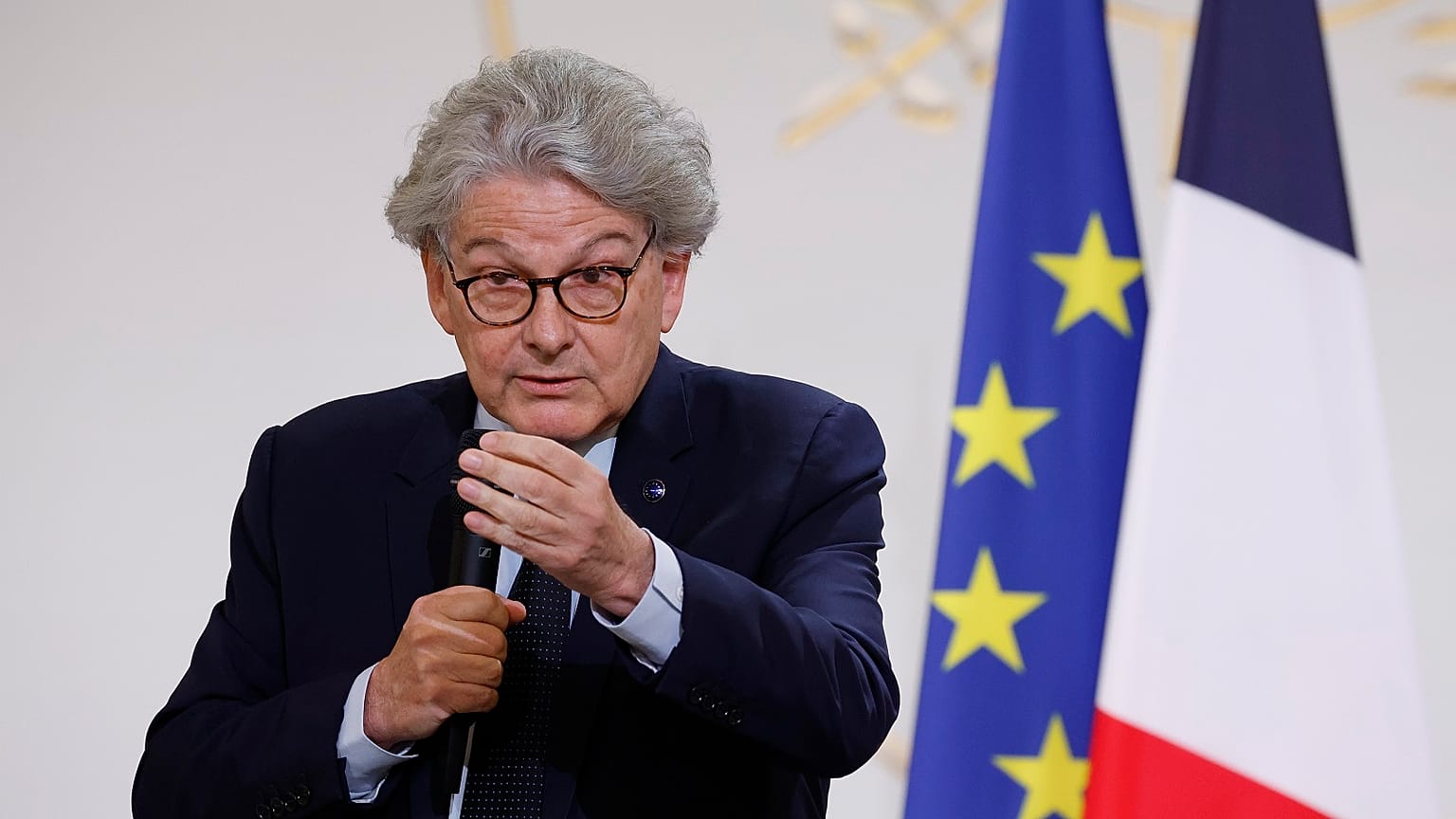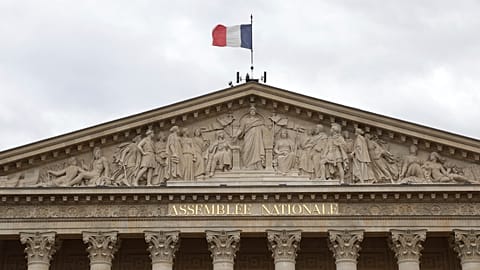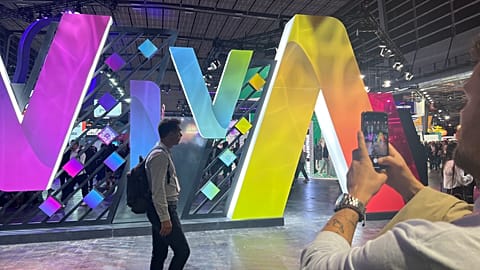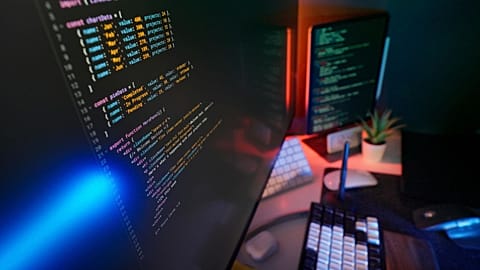As VivaTech 2024 gets underway, France announced its intention to become a world leader in AI. But investment and regulation remain an obstacle.
"Today, in continental Europe, France leads the way in the development of artificial intelligence [AI]," Marina Ferrari, France’s Minister of State for Digital Affairs, has said as the VivaTech fair gets underway in Paris.
 ADVERTISEMENT
ADVERTISEMENT
 ADVERTISEMENT
ADVERTISEMENT
"This is due to the policy we've been pursuing since 2017 of very strong support for innovation," she told Euronews Next on the sidelines of a meeting on Tuesday at the Elysee Palace, where French president Emmanuel Macron set out his vision for AI in the country.
Ferrari said this is due to the French tradition in research "and in particular very high-level academic training".
There is a wealth of talent being trained in France, some of them have had to leave, she said.
"But over the past few years, we've seen that talent is not only returning, but some of it is no longer leaving, and today we even have major international companies coming to invest in France".
The reason for France climbing onto the global AI stage is largely due to its initiative to support innovation and start-ups, which the country has been heavily investing in since 2017.
"We can see that something is really happening in France. I think that this fairly aggressive policy, which we've been pursuing for years now, is starting to bear fruit," she said.
"We need to continue and intensify this movement".
Can France make it onto the global AI stage?
France hopes to become a world leader in AI.
But the AI heavyweights are the United States, China, and the United Kingdom. France could "maybe" be among the global players, Eric Schmidt, Google’s former CEO and chairman, said at the Elysee Palace gathering.
What is stopping France and Europe, he said, are high energy costs, high taxes, and regulations compared to the rest of the world.
"Most British and European firms sell out too early, they don’t want to be a trillion dollar company they want to be a million dollar company," Schmidt said.
However, he said there are "plenty of other things" France can do better to attract companies to set up in the country, such as better AI regulation, which would help the banking and financial sector want to do business in France.
AI regulation was a big talking point for European Commissioner for Internal Markets, Thierry Breton, also in attendance at the event, who said the EU AI Act "creates one single rule for everyone, so it’s clear and useful".
While he said the acts to clarify regulation for businesses were now in place, financing is still an issue.
"Billions of euros leave Europe to invest In the US, we need to make sure invested in Europe and that the big task for the next commission," Breton said, adding that its second task is to invest heavily in digital infrastructure.
AI that helps everyone
Another big talking point at the event was about how AI should remain open source so that everyone can benefit from the technology.
Yann Le Cun, known as one of the "godfathers of AI" said his biggest hope was “EU enlightenment" and his biggest fear was AI "being captured by a small number of entities".
"I’m an optimistic person on AI- current tech is very limited in many ways, still very far from the intelligence we observe in humans and animals," the French-American computer scientist said.
"The biggest fear I have is that a future in which all our interaction with digital worlds will be AI assistants," he said, adding that they need to be trained to work in different cultures.
"One of the biggest challenges for AI today is that it needs diverse and free AI systems".
Speaking at the event, Arthur Mensch, co-founder of French AI start-up champion Mistral AI, added that his concern is the "US could build applications for all software. For us it’s a concern but not unavoidable".
"We should be more decentralised in way we deploy technology- such as for global south," he added.

















